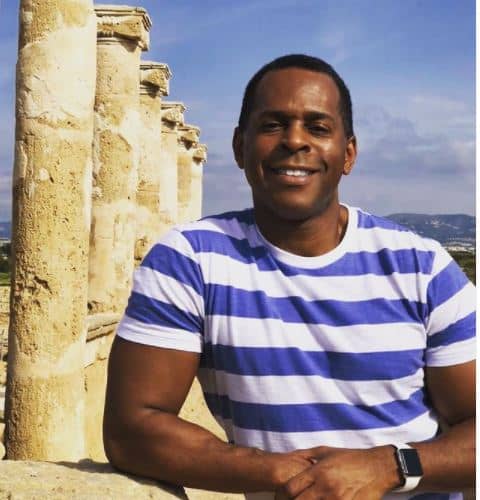Dragon is a singer, songwriter, and actress with an estimated net worth of $75 million. She was the youngest person ever to have her own record label at just 13 years old. The R&B/pop star has had more than 80 songs hit the top 10 on Billboard’s Hot 100 chart including “Blurred Lines” by Robin Thicke featuring T.I., Pharrell Williams’ “Get Lucky,” Justin Timberlake’s “Can’t Stop The Feeling!, Ariana Grande’s “One Last Time,” Drake & Rihanna’s “Too Good” among others.
The “dragon are you old enough” is a song that was released by the band Dragon. The song talks about how people can be like dragons and fly around.
During the 1970s, the famously decadent Dragon was one of New Zealand’s most popular rock bands, with much more success in Australia. Todd and Marc Hunter, brothers from the North Island village of Taumarunui, have been performing professionally in their parents’ jazz band since they were children, with Todd studying guitar and Marc acquiring drums. Both Hunter brothers performed in a number of local bands throughout the years, both together and separately; Dragon was formed in 1973 from the ashes of Staff, a band that included Todd on bass, singer/pianist Graeme Collins, guitarist Ray Goodwin, and drummer Neil Reynolds. Personality problems arose immediately, and Collins was replaced by keyboardist Ivan Thompson by his hedonistic comrades. Dragon was left without a singer as a result of this; however, the problem was soon resolved when Marc Hunter was hired as lead vocalist.
The classic Dragon lineup was in place when Reynolds was replaced by drummer Neil Storey. The band preferred a strong progressive rock style, which soon gained them a cult following, and they won the all-day Rock Marathon at the Auckland Festival in early 1974. Their popularity led to a deal with Polygram Records, and Dragon’s first album, Universal Radio, was released within months, becoming one of the best-selling “underground” albums of the time. The band started creating its outlandish on-stage antics during a month-long engagement at the Golden Dragon nightclub in Fiji, antics that included a transgender mime troupe, pregnant strippers, rotting pigs’ heads on microphone stands, and widespread damage of instruments and stage equipment. During a following national tour, however, Storey was fired, and Thompson resigned in protest; Dragon struggled as a four-piece with new drummer Geoff Chunn until disbanding weeks later.
Due to scheduling conflicts, Dragon was forced to reform; Storey was reintroduced behind the drums, while ex-Mammal member Robert Taylor was brought in on guitar. Scented Gardens for the Blind, the group’s second album, was released in 1975 and had nothing in common with their new live style, which abandoned their previous prog rock trappings in favor of more succinct and snappy pop tunes. Dragon launched a tour of Australia after a series of NZ tours that significantly increased their exposure at home; Goodwin left and was replaced by keyboardist Paul Hewson. The group struggled in Australia at first, with a song named “Starkissed” failing to chart and their equipment being stolen. Dragon signed with CBS after leaving Polygram. “Wait Until Tomorrow,” their debut single for the label, was a flop, but “This Time” seemed to be on the verge of becoming a success. Then tragedy struck: in September 1976, Storey died of a heroin overdose, a story that made national headlines.
A reeling Dragon returned on the road with a fury with new drummer Kerry Jacobsen, and spent the next two years traveling nearly nonstop, ultimately winning the all-important Australian audience. They released the album Sunshine in mid-1977, and the song “Get That Jive” became a success; by the end of the year, Dragon had become Australia’s most popular band, earning them a contract with the Portrait label in the United States. Their second album, 1978’s Running Free, went double platinum in Australia, with “April Sun in Cuba” being a huge success. After that, there was a huge tour. Dragon was out of control, fueled on smack and champagne, destroying hotel suites and dressing rooms in the process. Still, they were very successful, and their third CBS album, O, Zambezi, was their biggest yet, with “Are You Old Enough?” as the number one hit. However, a second American tour was a disaster, and Marc Hunter was fired in early 1979 as his drug issues intensified. Singer Billy Rogers and violinist Richard Lee took his place.
Dragon seemed to have fallen out of love with the public overnight; their following song, “Love Is Not Enough,” failed to chart, and their first New Zealand tour since 1975 was a flop. Dragon split after their 1979 album Powerplay failed to chart; nevertheless, the core of the band reformed in 1982 to pay off their debts. During their reunion tour, the Hunters, Taylor, Hewson, and Jacobsen did so well that they quickly issued a new single, “Joanne.” Its follow-up, “Rain,” was a huge success in 1984, and many fans felt that the accompanying LP Body & the Beat was one of the greatest albums they’d ever heard. Only the Hunters remained when the old personality problems resurfaced. (Unfortunately, Hewson died only hours after leaving the band.) Todd Rundgren produced the following Dragon album, Dreams of Ordinary Men, in 1986, and the band called it quits with 1988’s Bondi Road.
The “bands with dragon in the name” is a list of bands that have the word “dragon” somewhere in their band name. The list includes names like DragonForce, Dragonheart, and Dragontamer.
Related Tags
- dragon april sun in cuba
- daryl dragon funeral
- daryl dragon last photo






